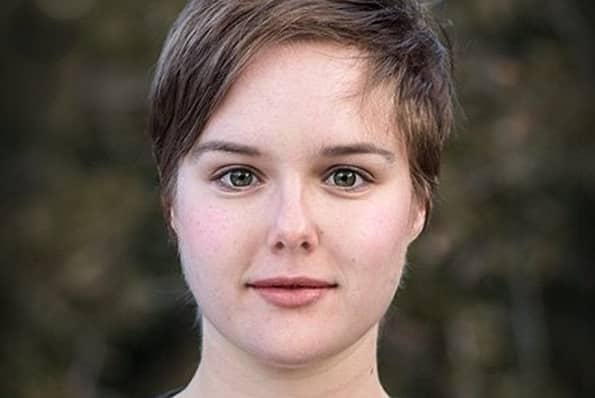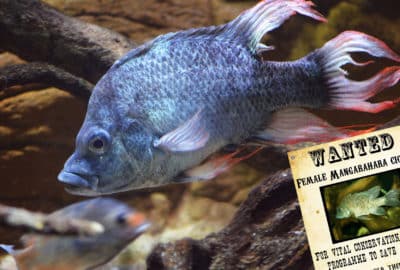Should we edit genes to make nicer people?
Wednesday 20th Jan 2021, 11.38am
Is it possible to edit someone’s genes before they are born to make them a nicer, kinder, more moral person? Not only that – but, importantly, should we do this? When it comes to gene editing for moral enhancement, there are many ethical points to consider. Join us as we chat to Tess Johnson, a Philosophy PhD student at the Oxford Uehiro Centre for Practical Ethics, about this very big question..
Is it possible to edit someone’s genes before they are born to make them a nicer, kinder, more moral person? Not only that – but, importantly, should we do this? When it comes to gene editing for moral enhancement, there are many ethical points to consider. Join us as we chat to Tess Johnson, a Philosophy PhD student at the Oxford Uehiro Centre for Practical Ethics, about this very big question…
Emily Elias: Wouldn’t it be nice if there were more good people in this world, like if there was a way we could ensure we got more Dolly Partons? Well, on this episode of the Oxford Sparks ‘Big Questions’ podcast we are looking at altering genetic code and asking, “Should we edit genes to make nicer people?”
Hello, I’m Emily Elias and this show, we seek out the brightest minds and the University of Oxford and we ask them the big questions. For this one we’ve found a researcher who spends her day thinking about this and even bigger questions.
Tess Johnson: I’m Tess Johnson. I’m a DPhil candidate at the Oxford Uehiro Centre for Practical Ethics, and my research looks at the ethics of germline genome editing which are changes to our genes.
Emily: Now, to be clear, we are not talking about curing diseases through gene editing or creating a breed of X-Men and giving us all superpowers. We are talking about a very specific area, about editing people’s genes to make them nicer, kinder people and yes, this is something researchers are actually looking at.
Tess: We certainly know it is not possible yet. It is something that is a little bit sci-fi but it is certainly a serious debate that is happening theoretically, and we do have technically the genetic tools to be able to do this.
Emily: Wait, so how would it work if we could do this? What is the theory?
Tess: Right, what we have is there is great protein complex that we got from bacteria, and we’ve kind of adapted this tool that is out there in real life, so that we can hijack it for our own purposes to edit our own genes.
What we can actually do is chop into the genome, the human genome as well, wherever we want, and then we can replace bits and pieces with other bits and pieces, or we can turn genes on and off.
You might want to say, alter a particular gene. There is this hormone that we have called ‘oxytocin,’ and it mostly acts in our brains. It is also known as the ‘love hormone’ or the ‘empathy hormone.’ There is this idea that maybe if you increased production of that hormone by changing the genes, the code for it, then you could increase people’s empathy, which might make them better people, make them more moral, maybe.
But the problem is that we don’t necessarily know what kinds of side effects that might have, or where else that hormone acts and what it does in other parts of the body.
Emily: Are we able to pinpoint, isolate down to like, “I am changing the gene for oxytocin levels in the brain,” or could it end up that we, somehow, I’m not saying we are going to screw it up, but somehow you actually edit the gene, that you get more oxytocin in your gut bacteria or something like that?
Tess: Yes, I mean, the problem at the moment, one of the safety problems is that what we get is something kind of like that. It is called ‘genetic mosaicism,’ and the idea is that if you change the genes of a cell and then you try to get that cell to grow into a baby, so you edit the cell in the embryo and then you implant it in the mother’s womb, and bring it to term and a child is born, the best case scenario is that change has occurred and all of the cells have that change, so that all of the cells have this increased oxytocin production.
But it is only activated in maybe the brain cells where you want it to be activated but, as you say, we can’t necessarily pinpoint that. In mosaicism some of the cells end up having that edit and some of them don’t. You could end up having cells that are better at producing oxytocin in one part but not better at producing oxytocin where it really actually counts. Yes, there is some idea. You are onto something there with that.
Emily: But it sounds really complicated. Could you actually guarantee that it would work and that somebody would be a nicer person?
Tess: I think there are definitely no guarantees. Where we are with the technology at the moment is that we know we have the right tools, but what we are quite limited by is, first off, the safety of those tools and then also just our genetic knowledge. There is so much out there that we don’t even know about our own genomes and the way that things work.
Emily: There are no guarantees that this would work and it is a very complex problem. Even if you sorted out the technical side, I mean, is it ethical to mess around with people’s personality traits? Just because you can make somebody nicer or more empathetic, does that mean you should do it?
Tess: There are definitely still questions about whether we should be interfering with ourselves and with our human genome. There are some people that say, “Even if this were perfectly safe and there were no problems, we would still be doing something wrong by trying to edit our children to make them better people, because when you edit them you might take away some important- maybe it is human that we are defined by these weaknesses that we have in genomes”.
Some philosophers say, “Maybe we need to be open to the unbidden and treat our children as gifts, and maybe it doesn’t align with giving people, future people, the respect that they deserve to actually gene edit them and change them before they are born. They obviously have no way to consent to this so there could be so big problems there. It is definitely a big concern”.
Emily: It really messes with the question of nature versus nurture. One of the oldest debates in psychology circles, do inherited traits or life experiences play a greater role in shaping your personality?
One day, could it be common for us to just walk into a doctor’s office and say, “Hey, I want to have a kid but I don’t want to have a mean one, so can you just give me the right boxes to tick?”
Tess: Theoretically, there is a future, a possible future where you can walk into a doctor’s surgery and ask for that. Some people would say, “Okay, well, there are ethical problems with changing our natures,” and some people would say, “Actually, that is a fallacy”.
There is a fallacy that we call ‘genetic determinism,’ which is where we think in our arguments sometimes that our genes determine our traits directly, and that is people saying, “It is all nature, no nurture”.
But really, what our genes encode for is only one small part of what a trait ends up being and who we end up being as people. If you want to make sure that you don’t have a child that is a jerk, you may be able to have some influence over that by changing their DNA. But not only might that be wrong but that might not be effective.
We need to take into account that there is certainly this really big nurture component, the way that you parent your child, the environments that you put them in, all of these have really big effects on who they might turn out to be.
I think we don’t want to fall into the trap of thinking that this is the only thing that counts, so even other biological process that influence whether or not a gene activation will turn into a trait.
Emily: How far away are we from this sort of dystopian reality where we could have a checklist and picking off traits for our children?
Tess: (Laughter) Okay, well, I don’t want to scare you but we are kind of already there, just in some ways. We have used genome editing to change the traits in children who are actually brought to term.
There were these two twins in China who were born in late 2018 and this scientist, He Jiankui, he made this big announcement that these two twins were born immune to HIV because he had genome edited them, and given them this enhancement to make them immune.
He Jiankui: Two beautiful little Chinese girls named ‘Lulu’ and ‘Nana’ came crying into the world as healthy as any other babies a few weeks ago. The girls [Crosstalk 0:08:51]-
Tess: But he’d announced it and expected to be heralded as a kind of hero in his field. People had been looking to do this for a long time, but at the same time he didn’t follow the procedures very well. It wasn’t a well-designed experiment and there was just general outrage in the scientific community.
There was kind of already semi-agreed that there should be a moratorium. There should not a permanent ban but a fixed-term pause on research into, and potential clinical applications, of genome editing, and this definitely broke that.
He Jiankui: As a father of two girls I can’t think of a gift more beautiful and wholesome for [this idea, then 0:09:35] giving another couple a chance to start a loving family.
Tess: That scientist copped a very big fine and he is currently in prison. He was sentenced to three years for that kind of research misconduct. But there are limitations on what we have put in place at the moment to prevent these issues from arising.
In most countries we don’t really have laws about it yet because people do see it as so far off and dystopian, and that there is not that much regulation at the moment. There are a lot of questions that we need to answer as soon as possible about the ethics and then about the laws that we need to put in place, to make sure that if this is done, it is done safely and it is done ethically.
Emily: Tess says what we don’t want to have happen is a patchwork of rules where each country is different, and you create this market for baby editing tourism. I mean, say you want to get a baby edited in the UK and they won’t do it, maybe if you just go a bit further out to a different you can get what you want done, because the rules are just a bit more relaxed.
Tess: It is much easier to make these kinds of laws at a national level, but we don’t know whether it will be effective. There are already these tourism markets in things like surrogacy or organ markets. We know that people just travel to countries that have less strict rules so that they can get done what they want to get done, and that is something that we would really, really want to prevent when it comes to genome editing.
You want that level of consistency that ensures that people are kept safe, and that this technology isn’t misused, that is especially the case, because when we are talking about genome editing and future children, every change that you make can be inherited by future generations. We are not just talking about one person. We are talking about whole lines of descent.
At the moment, a lot of the ethics discussion has been around creating international regulatory bodies, or at least guiding committees that would inform legislation going into the future, so we can hope for that.
Emily: This notion of, should we edit people to make them more moral, to make them nicer, just throws up even more questions for researchers like Tess to answer.
Tess: Something like moral enhancement is definitely something I would want to be able to pursue for my child, but only under the right conditions. You’d want a well-regulated market and you’d want to know that this was going to be safe for your child, and safe for everyone else in society, that they won’t become some kind of threat.
Emily: This podcast was brought to you by Oxford Sparks from the University of Oxford, with music by John Lyons and additional music from Lee Rosevear, and a special thanks to Tess Johnson.
Tell us what you think about this podcast. You can find us on Twitter and Tweet @OxfordSparks. We are also on Facebook and YouTube, and all those other cool places where the kids are hanging out, and we have a website, oxfordsparks.ox.ac.uk. I’m Emily Elias. Bye for now.





